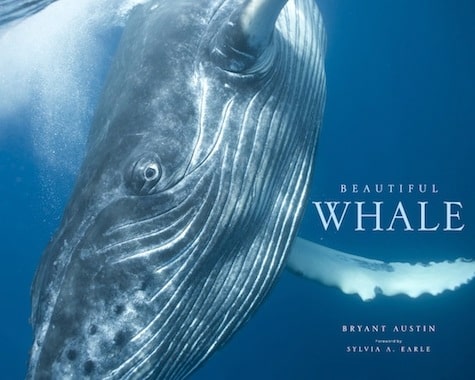 Evolution
Evolution
 Intelligent Design
Intelligent Design
Animal Sentience, Bad News for Darwinists

A pair of beautiful essays, by Alexis C. Madrial and John Jeremiah Sullivan respectively, came to my attention this week: one in the Atlantic (“You’re Eye-to-Eye With a Whale in the Ocean. What Does It See?“), one in Lapham’s Quarterly (“One of Us“). Both are worth reading, and deal with related themes, basically the question of what it’s like inwardly to be an animal.
Madrigal writes in part about a new book by innovative photographer Bryant Austin:
Austin has to get within ten feet of the whales, and he has to take many photographs from that distance in order to get enough photographs to stitch together the life-size portrait. In practice, that brought him eye-to-eye with these multi-ton animals time and again.
In his new book about his process, out next week, Beautiful Whale, he describes a moment where he came eye-to-eye with a sperm whale named Scar. “I lowered the camera so that our eyes could meet once again, I noticed his eye moving along the length of my body before returning to meet my gaze,” Austin wrote. “As I reflect upon that moment and reconsider the question, ‘What does it feel like [to be so close to whales]?’ the only word that comes to mind is ‘disturbing.'”
Why is it disturbing? Because, as Austin puts it, the whale challenges him “to reevaluate our perceptions of intelligent, conscious life on this planet.” This mammal’s eye — lens, cornea, pupil, retina, photoreceptors and ganglion nerve cells — is a direct passageway into its brain. And when we look at it, Austin can’t help but see an intelligence there, a connection to a brain that, perhaps, works enough like ours for us to understand each other.
“Disturbing” is the word the photographer uses. Some, including me, have said in the past that among the toxic, disturbing untruths spread by Darwinists is the idea that men and animals are hardly distinguishable. If people are just a kind of fancy animal, nothing more than that, how can we coherently go on telling our children not to “act like animals” since…that’s exactly what we all are?
According to this style of anti-Darwinian thinking that I’ve backed away from, which prefers to draw a super-sharp distinction between people and other creatures, more scientific evidence of how much we share with animals should be good news for the Darwin side in the evolution debate, and bad news for us. It’s why some of our favorite Darwin bloggers revel in videos of cute cats, brilliant chimps, and similar, acting all human-like. A fellow like Jerry Coyne at Why Evolution Is True wants to rub our faces in it.But given the arguments of Thomas Nagel in Mind & Cosmos, such an assignment of the animal-consciousness problem is actually backward. Nagel shows how Darwinian materialism is undercut by the fact of consciousness, which doesn’t seem very likely to have emerged from a process of blind churning of a purely material universe. The problem for Darwinists is bad enough if only human beings can be said to enjoy conscious self-awareness.
It gets worse for them if you extend the crown to a select few of our fellow higher mammals, and worse still, again for materialists, as you extend it further and further to “lower” animals. For Darwin defenders, seeing ourselves reflected in animal eyes and faces is actually kind of a lose-lose proposition. For us, whether consciousness is uniquely human or much more universal than that, it’s win-win.
